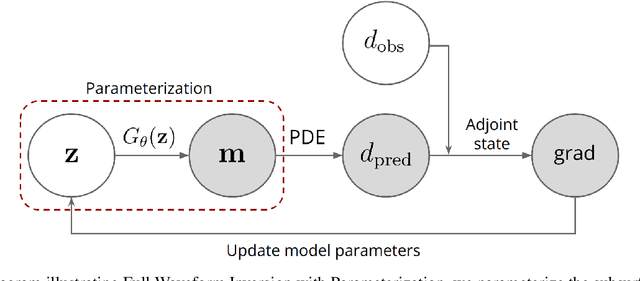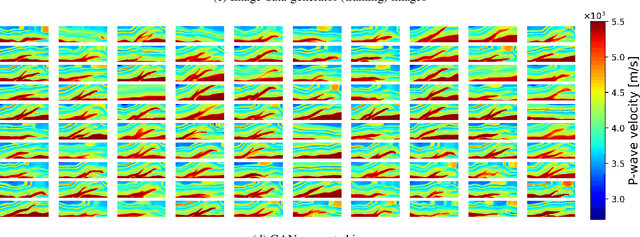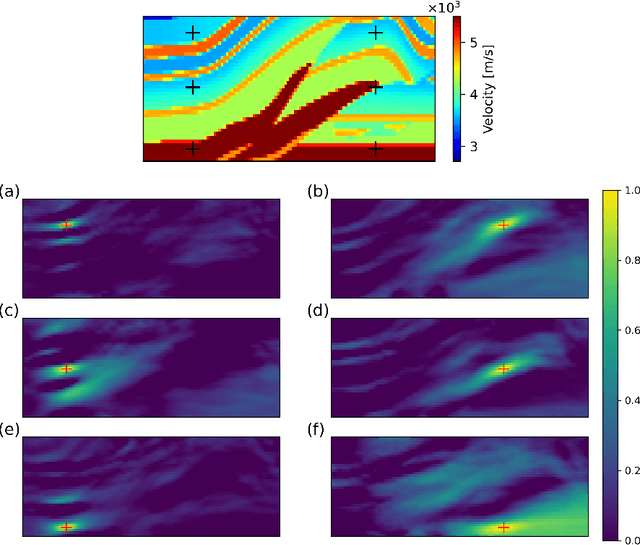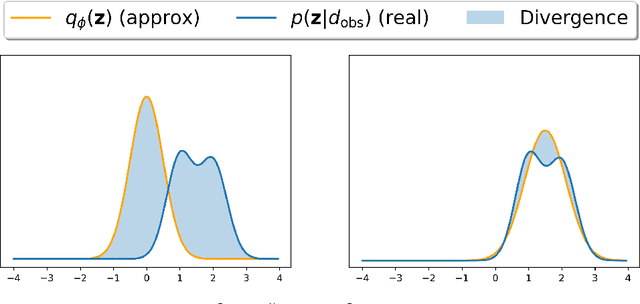Yuke Xie
Diffusion prior as a direct regularization term for FWI
Jun 11, 2025Abstract:Diffusion models have recently shown promise as powerful generative priors for inverse problems. However, conventional applications require solving the full reverse diffusion process and operating on noisy intermediate states, which poses challenges for physics-constrained computational seismic imaging. In particular, such instability is pronounced in non-linear solvers like those used in Full Waveform Inversion (FWI), where wave propagation through noisy velocity fields can lead to numerical artifacts and poor inversion quality. In this work, we propose a simple yet effective framework that directly integrates a pretrained Denoising Diffusion Probabilistic Model (DDPM) as a score-based generative diffusion prior into FWI through a score rematching strategy. Unlike traditional diffusion approaches, our method avoids the reverse diffusion sampling and needs fewer iterations. We operate the image inversion entirely in the clean image space, eliminating the need to operate through noisy velocity models. The generative diffusion prior can be introduced as a simple regularization term in the standard FWI update rule, requiring minimal modification to existing FWI pipelines. This promotes stable wave propagation and can improve convergence behavior and inversion quality. Numerical experiments suggest that the proposed method offers enhanced fidelity and robustness compared to conventional and GAN-based FWI approaches, while remaining practical and computationally efficient for seismic imaging and other inverse problem tasks.
Stochastic full waveform inversion with deep generative prior for uncertainty quantification
Jun 07, 2024



Abstract:To obtain high-resolution images of subsurface structures from seismic data, seismic imaging techniques such as Full Waveform Inversion (FWI) serve as crucial tools. However, FWI involves solving a nonlinear and often non-unique inverse problem, presenting challenges such as local minima trapping and inadequate handling of inherent uncertainties. In addressing these challenges, we propose leveraging deep generative models as the prior distribution of geophysical parameters for stochastic Bayesian inversion. This approach integrates the adjoint state gradient for efficient back-propagation from the numerical solution of partial differential equations. Additionally, we introduce explicit and implicit variational Bayesian inference methods. The explicit method computes variational distribution density using a normalizing flow-based neural network, enabling computation of the Bayesian posterior of parameters. Conversely, the implicit method employs an inference network attached to a pretrained generative model to estimate density, incorporating an entropy estimator. Furthermore, we also experimented with the Stein Variational Gradient Descent (SVGD) method as another variational inference technique, using particles. We compare these variational Bayesian inference methods with conventional Markov chain Monte Carlo (McMC) sampling. Each method is able to quantify uncertainties and to generate seismic data-conditioned realizations of subsurface geophysical parameters. This framework provides insights into subsurface structures while accounting for inherent uncertainties.
 Add to Chrome
Add to Chrome Add to Firefox
Add to Firefox Add to Edge
Add to Edge